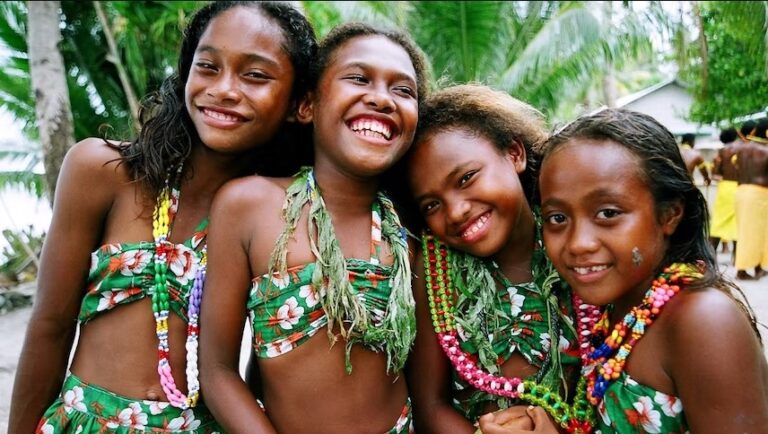Aboriginal Australians are the first settlers of the place now known as Australia. Known for their diverse cultural identities which lasted for over for over 65,000 years, the Aboriginal Australians represent more than 250 distinct language groups spread throughout Australia. In addition, about three per cent of Australia’s population has Aboriginal heritage.
For decades, this race of people has been displaced and lived as strangers in their lands. As a result, heated debates are still ongoing about their fate, ranging from social standing to legal representation.
So…
Who are the Aboriginal Australians?
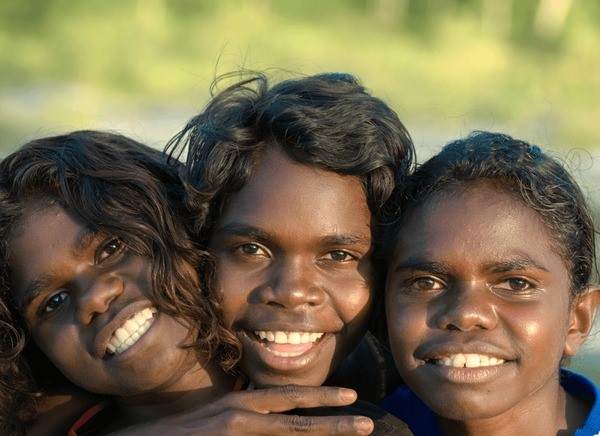
Photo credit: LittlePanda29/Shutterstock
The Aboriginal Australians are the indigenous people of Australia. They are divided into two groups – the indigenous people who lived on Australian lands before the invasion of British colonialists; and the Torres Strait Islanders, who are the descendants of residents of the Torres Strait Islands, which was annexed by Queensland, Australia in 1879.
Aboriginal Australians origin
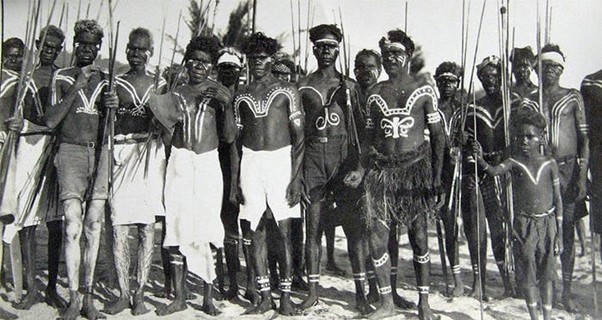
Aboriginal Australians are often referred to as the First Nations people. These indigenous people are said to be among the first humans to migrate out of Africa, across the coastlines of India and Asia until they reached the shores of Australia about 70,000 years ago. They are a diverse group of hundreds of nations (or cultural groups) and clans. It has also been estimated that about 250 languages and 600 dialects were spoken at the time of the colonial invasion in 1788 in over 500 different nations. Hence, Aboriginal Australians are the oldest human population to live outside Africa.
Furthermore, the Torres Strait Islanders are First Nations Australians who moved from the islands of the Torres Strait, between Cape York in Queensland and Papua New Guinea. They are of the Melanesian origins, with differing identities, histories and cultural traditions to Aboriginal Australians.
Most of the Aboriginal Australians lived along the coast and depended on planting wild yams and fishing for their food. The rest who lived on the inland in the bush lived by hunting and gathering, burning the undergrowth to encourage the growth of plants favoured by the game they hunted. They were also experts in looking for water.
Aboriginal Australians and British invasion
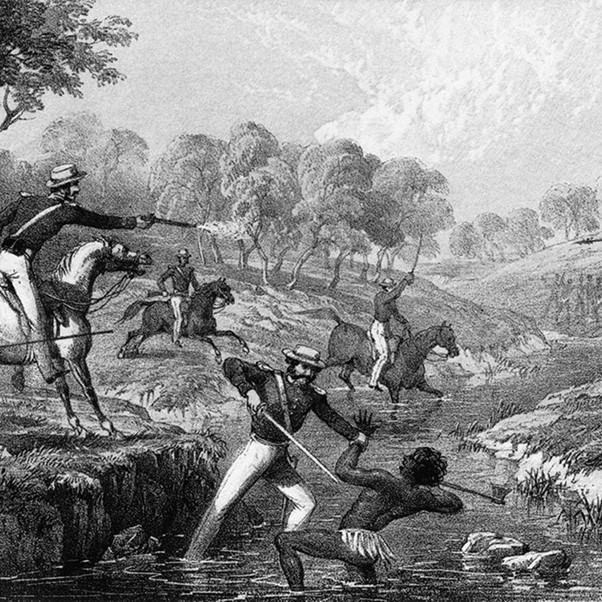
In 1788, British settlers began colonising Australia. At the time, an estimated 750,000 to 1.5 million Aboriginal Australians were living there. However, epidemics soon ravaged the indigenous people, thus presenting the British with the opportunity to seize their lands.
In addition, some First Nation people tried to resist, leading to up to 20,000 people dying in violent conflict on the colony’s frontiers. Most deaths were a result of the massacre or impoverishment imposed by the British colonials. Some schools of thought believe that the continent’s first inhabitants are widely considered to have been wiped out through violence.
ALSO READ: Luxurious Castle Hotels You Can Stay In Scotland
‘Stolen Generation’ Aboriginal Australians
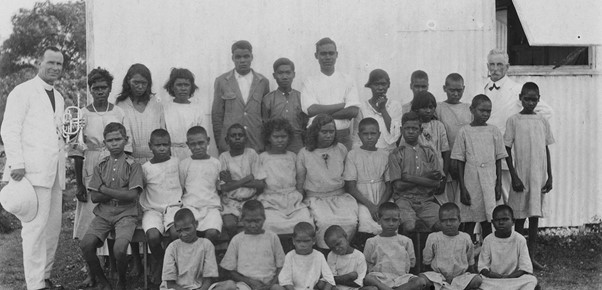
Between 1910 and 1970, the colonial government introduced policies of assimilation whereby about 10 to 33 per cent of Aboriginal Australian children were forcibly removed from their homes. These children known as the ‘Stolen Generation’ were put in adoptive families and institutions and forbidden from speaking their native languages. Their names were also changed.
Aboriginal Australians today
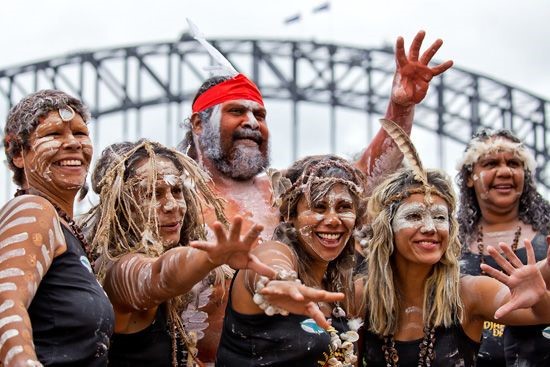
Aboriginal Australians did not have voting rights until 1965. In 1967, Australians voted that the federal laws should also apply to Aboriginal Australians. In addition, the First Nation people, including the Torres Strait Islanders, would be counted as part of Australia’s population and Australia could make laws that they are obliged to obey.
In 1992, the Australian government overturned the legal principle governing British and Australian law, which stated that Aboriginal land was that of terra nullius, meaning that the land was empty before the British arrived. Therefore, it belonged to no one and could be taken over legitimately.
In 2008, then Australian Prime Minister, Kevin Rudd, issued a national apology for the country’s actions toward the Stolen Generations. Since then, the Australian government has made efforts to reduce social disparities and discrimination that Aboriginal Australians usually face.
Today, Aboriginal Australians still struggle to find their identity in their ancestral land. They are still struggling to retain their ancient culture and tradition and fight for recognition and restitution for all they have suffered for centuries. The First Nation people suffer other disadvantages too. According to World Vision, the child mortality rate for First Nations children was 141 per 100,000 in 2018, twice the rate for non-First Nations children. Also, about one in four First Nations students in years five, seven and nine remain below national minimum standards for reading. Between 2018 and 2019, around 34 per cent of First Nations youth aged 20-24 had not attained year 12 or equivalent. Additionally, over half of all young people in detention on an average night in June 2019 were Aboriginal Australians.
Most Aboriginals live in towns, often on the outskirts in terrible conditions. Many others work as labourers on cattle ranches on their ancestral lands. However, there are those, especially in the northern part of the continent, who still retain their ancestral lands, hunting and gathering ‘bush tucker’
In 2023, most Australians rejected a national referendum that would have both recognised Aboriginal people in its constitution and established an advisory group to deliberate on relevant issues in Parliament. On the other hand, most Aboriginal Australians voted yes to the proposal and were disheartened by the overwhelming rejection, making them proclaim a week of silence and reflection.
To this day, Australia has never made a treaty with the Aboriginal Australians, making it the only country in the British Commonwealth not to have ratified such a treaty. However, some Australian states are putting plans in place to rectify the situation.
For instance, the state of Victoria has reportedly established a framework for treaty negotiations and is expected to broker a first-of-its-kind agreement that will recognise Aboriginal Australians’ sovereignty. The negotiation also includes compensating victims of historical injustices and incorporating the findings of a truth-telling committee investigating the discrimination faced by Aboriginal Australians.
This treaty will go a long way to mending the hearts of the First Nation people. In the meantime, Aboriginal Australians have since declared their sovereignty which they believe has never been ceded or taken away, whether Australia officially recognises them or not.
ALSO READ: Top 10 Places To Avoid Abroad During Valentine Season


